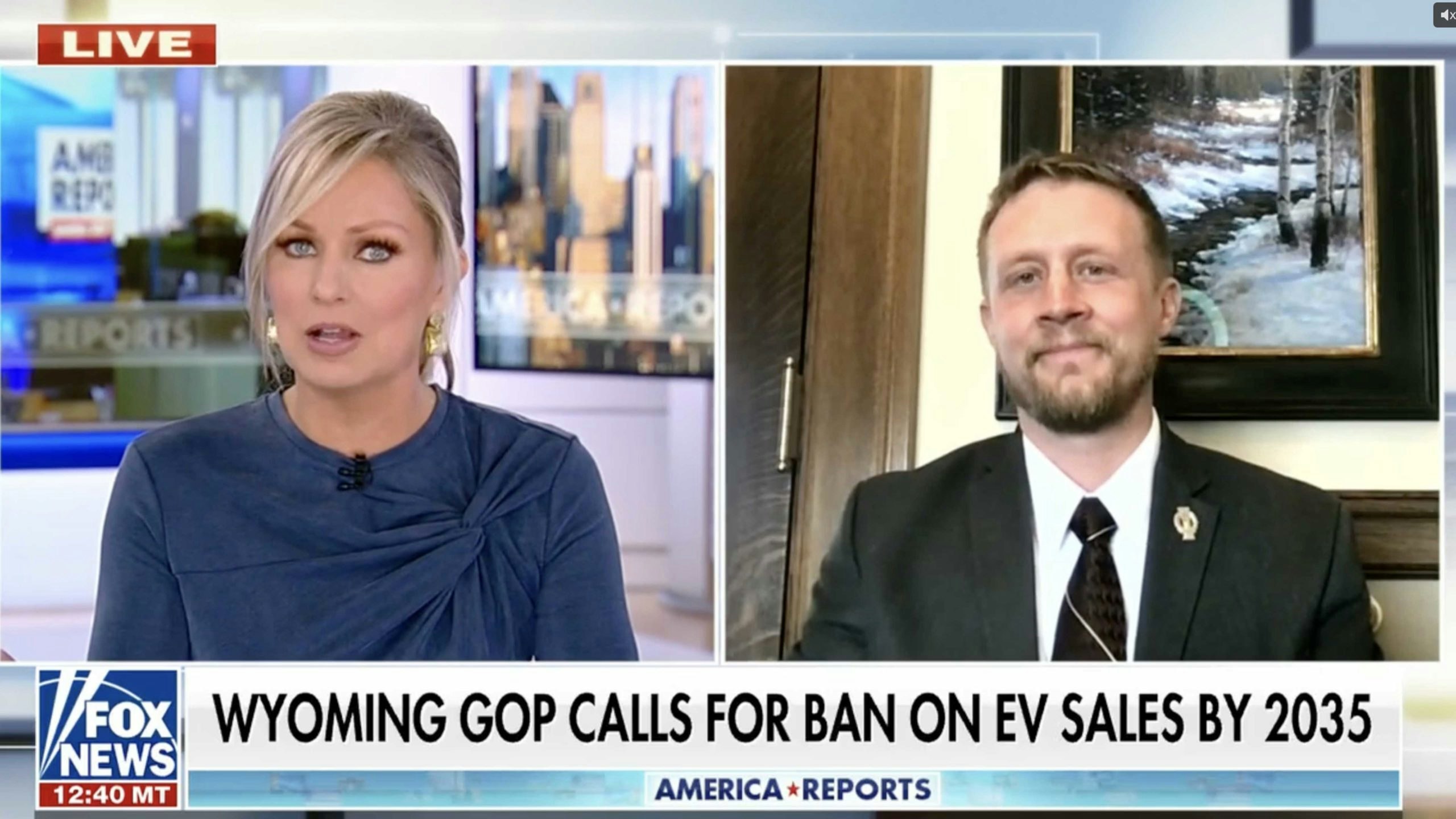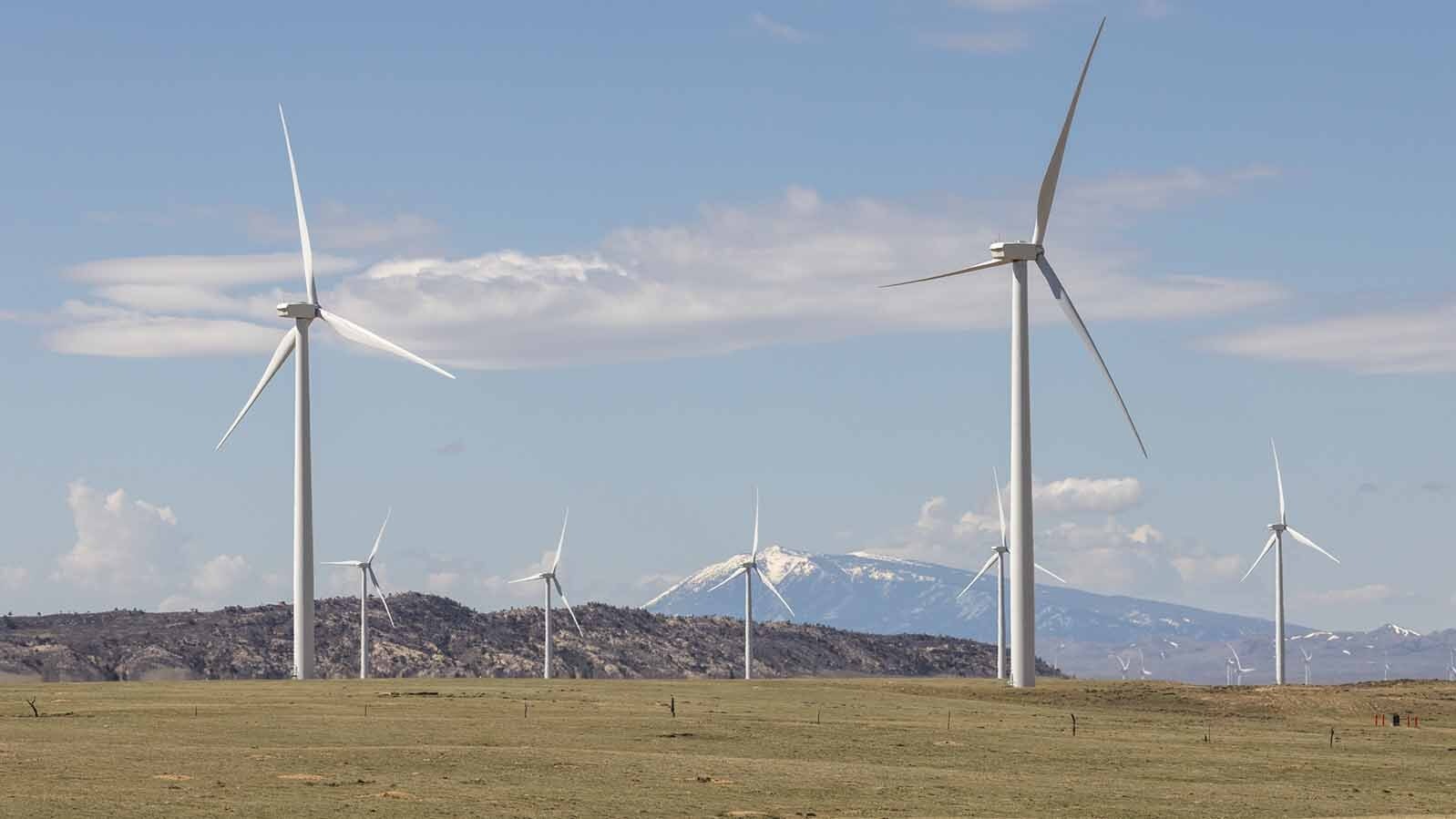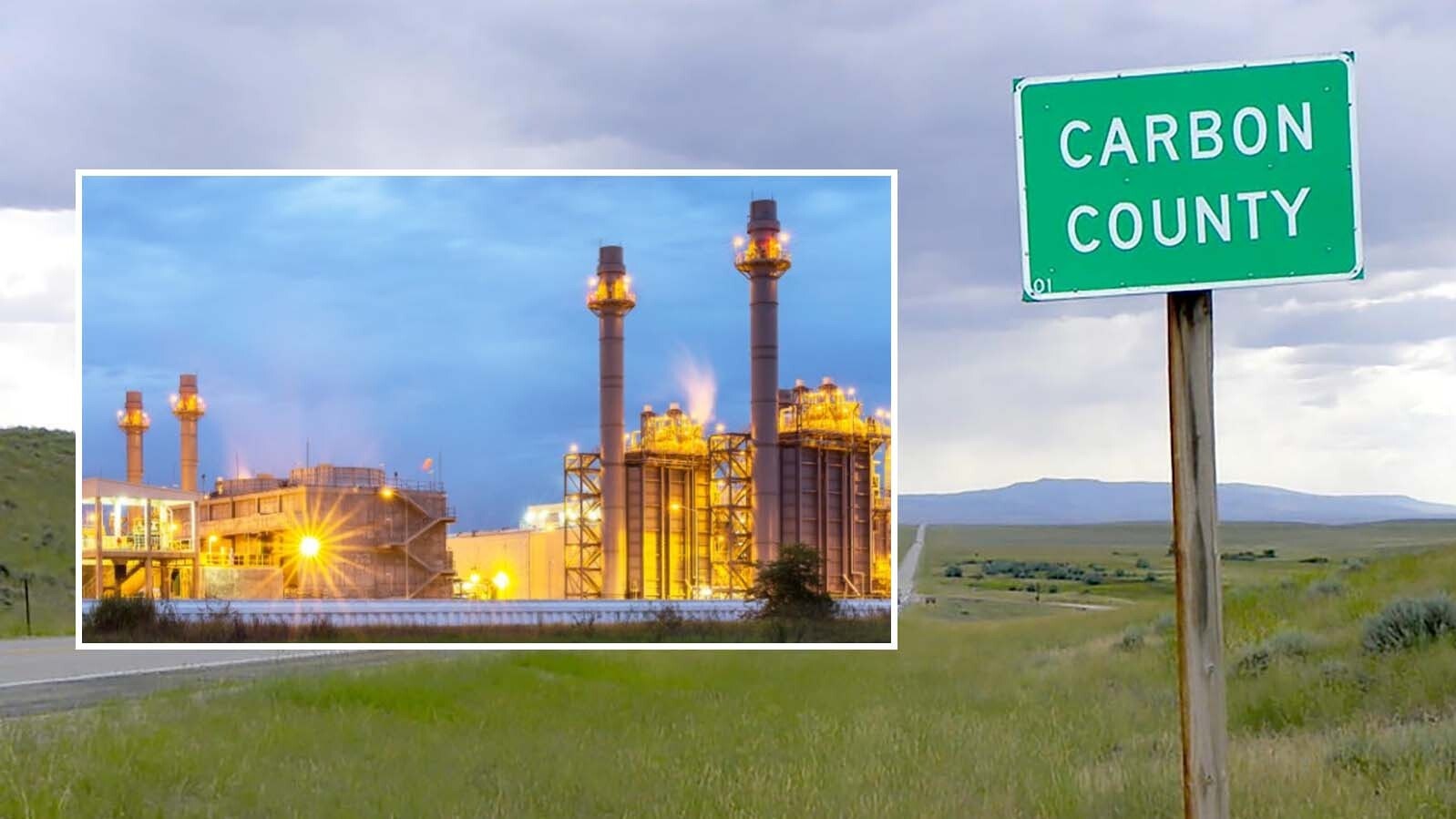The sponsors of a resolution that sought voluntary compliance with a goal of phasing out sales of new electric vehicles in Wyoming by 2035 weren’t bothered when it died in committee for lack of a motion.
They wanted to make a statement about other states charging ahead with bans on gas-powered cars without considering the long-term consequences those policies or the impact they can have on energy states like Wyoming.
The nationwide coverage the resolution received, including hundreds of articles and countless segments on TV, radio, and digital, has its sponsors taking a victory lap, but PR professionals say there’s more to effective messaging than just a viral story.
Going Viral
After Cowboy State Daily first reported on the resolution, calls to the resolution’s sponsors came roaring in.
Sen. Jim Anderson, R-Casper, who sponsored Senate Joint Resolution 4, was interviewed for Fox News, Fox Business and Newsmax. He said he also was contacted by news outlets in New York, Pennsylvania, Illinois, Florida and Pennsylvania.
“I feel the message got out. I think it got out very nicely,” Anderson told Cowboy State Daily.
A Learning Experience
Besides news outlets reporting on the proposal, Anderson said he’s been contacted by people who have provided him with a lot of new information on the topic of EVs. That includes the enormous amount of electrical generation capacity that would have to be built out to transition all that transportation energy from fossil fuels to electricity.
“It’s just insurmountable,” Anderson said.
It’s All Ridiculous
When the resolution died in committee, Sen. Ed Cooper, R-Ten Sleep, who cosponsored the bill and is on the Senate Minerals Committee, said the purpose was to spark a conversation and maybe that’s where it would end.
“I personally think the idea of an EV vehicle ban is ridiculous, but it’s no more ridiculous than a ban on gasoline vehicles,” Cooper told Cowboy State Daily.
Sen. Brian Boner, R-Douglas, another cosponsor of the resolution, said he was also satisfied with the outcome and the boost it gave the oil and gas industry.
“This has maybe given some folks in other parts of the country a little taste of what it feels like when people start banning certain products that are important to your way of life,” Boner said.
Mostly Peaceful
The sponsors said the feedback they’ve received has been almost entirely supportive, though there are some exceptions.
Anderson said he’s received calls and emails from people in the oil and gas industry, including people from the major operators in Wyoming. But support also came from people in Texas and Oklahoma.
“A lot of a lot of energy workers are calling us and emailing us with nice emails,” Anderson said.
However, out of all the legislative work he’s done since he was first elected in 2013, nothing generated more “nasty” calls than the EV resolution, he said.
“I developed a new appreciation for the far left,” Anderson said.
He said there haven’t been any threats or anything that serious, mostly just a lot of profanity.
Cooper said one vicious comment came out of Washington state, but these types of remarks were “minimal.”
“Really, 95% of the comments are very positive,” Cooper said. “Those people that are so narrow minded that they can’t do anything without massive amounts of profanity aren’t going to have their minds changed anyways.”
Long-Term Impact
While the nationwide attention spun out of Cowboy State Daily’s initial report on the resolution, not all the press was friendly.
Many outlets wrongly reported that Wyoming was, in fact, banning electric vehicles, and some of the coverage mocked the state as backward thinking.
Rachel Girt, owner of Girt Communications LLC, a Cheyenne-based public relations firm, told Cowboy State Daily that making a brief splash in the news cycle won’t go much further without some other pieces.
A more robust media outreach is needed when considering these kinds of political stunts.
“It’s probably not going to make a long-term impact on the trajectory of the EV industry and the nation, much less in California,” Girt said.
There’s also some bystanders to consider, Girt said. The Wyoming Automobile Dealers Association spoke out in committee against the bill, arguing that it asked dealers to go against manufacturer’s agreements and encouraged people not to buy their products.
The tourism industry also could be impacted if the perception is that Wyoming is hostile to electric vehicles.
Rallying Cry
Fitzgerald Strategies Group in Cheyenne provides a number of public relations services.
Principal Rebekah Fitzgerald told Cowboy State Daily that the result of the resolution and its aims of starting a communication need to be compared to the movement of policy and legislation in states that are seeking to actually ban gas-powered cars.
“They certainly did start a conversation, but one of the things when it comes to messaging and PR, is it’s always one piece of the larger puzzle,” Fitzgerald said.
In terms of effecting change, it could serve as a rallying cry — to say to others who share this perspective that they’re not alone.
“It’s communicating a perspective and one that falls in line where a lot of people expect Wyoming to be — a fossil-fuel friendly state,” Fitzgerald said.
There are other considerations to weigh, Fitzgerald said. When you put the story out there, it can go where you don’t necessarily want it to.
Many outlets gave people the impression that Wyoming was anti-free market and imposing government regulations on businesses and consumers.
“I think the followup conversations that Senator Cooper and others have been able to have, to say why they did it is, good. But if you’re just reading a headline, it can also backfire,” Fitzgerald said. “When things go viral, you can’t always control it.”
More To Come?
The resolution wasn’t passed by the full Legislature, but this might not be the end of it.
States like California aren’t just pursuing bans on gasoline-powered cars. They want to ban diesel semitrucks, gas-powered stoves, gas-powered heaters and gas water heaters.
Wyoming legislators feel the urge to spark a lot more conversations.
“We just had a resolution. We haven’t done a bill yet. But, you know, anything’s possible in the future,” Anderson said.





